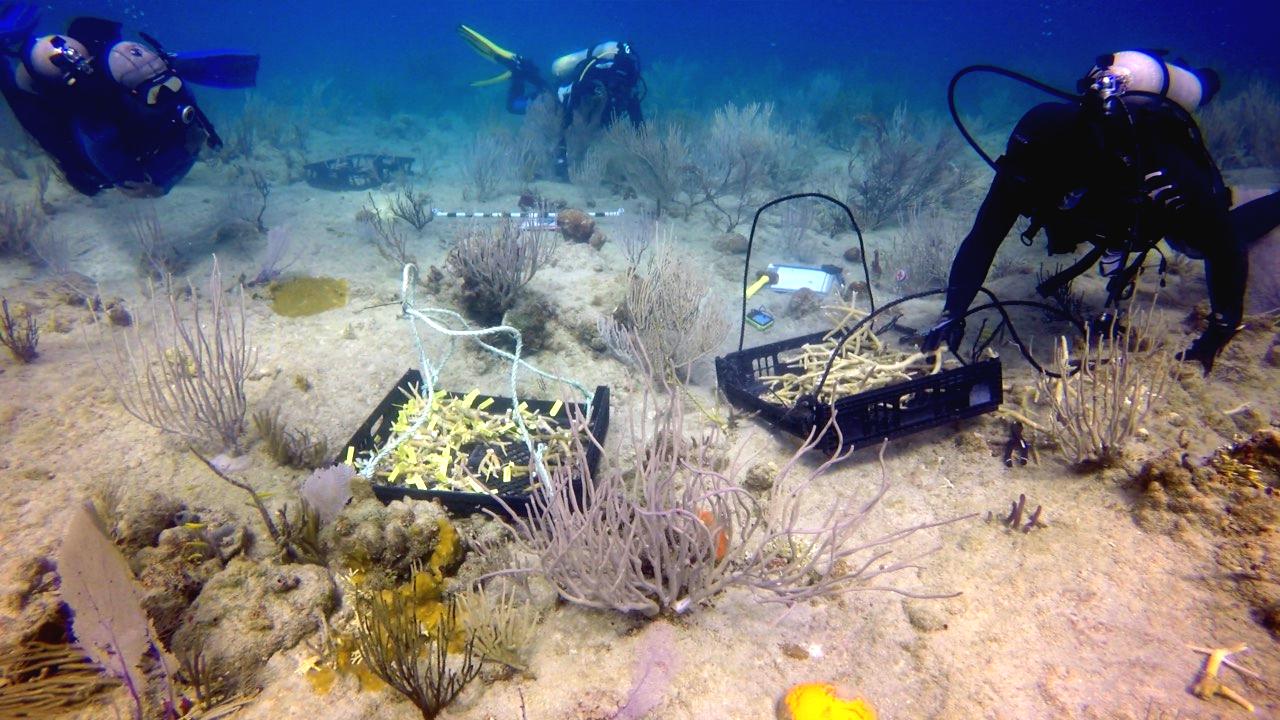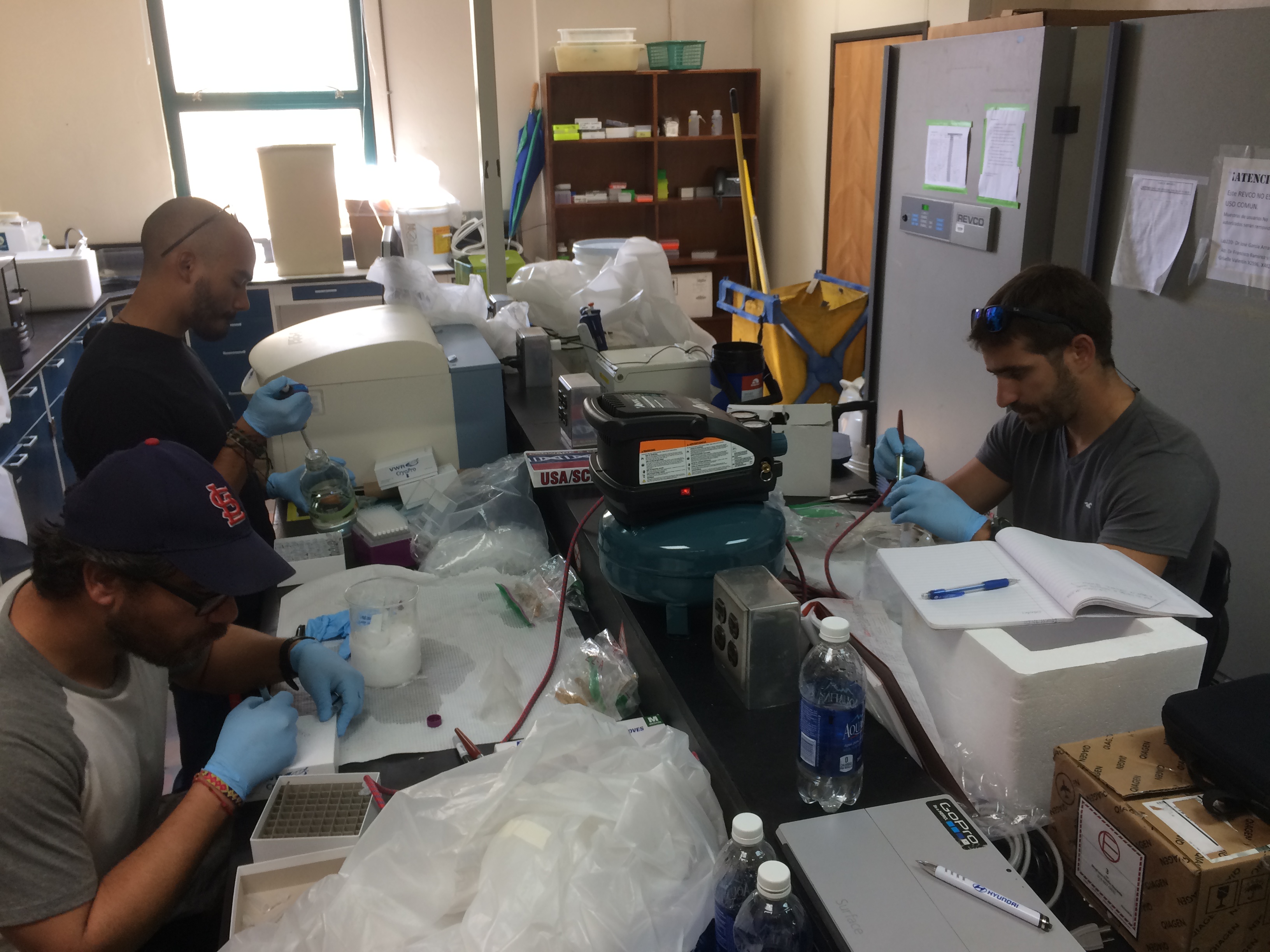At the same time that power and infrastructure is restored and repaired by humans, reefs around the island are struggling to survive after being dramatically impacted by the storms. This constitutes an incredible opportunity to study the mechanisms involved in coral recovery, especially the role of acquired modifications in the microbiome and the epigenome.
We hit hurricane ground zero last week to start our research, funded by the National Science Foundation. This work is being currently developed by a multi-institutional team of researchers, led by FIU’s Environmental Epigenetics Lab, in collaboration with the University of Puerto Rico (UPR), and the Pennsylvania State University. Our project has critical outreach and educational components, including the participation of the Puerto Rican NGO Sociedad Ambiente Marino (SAM).
Our trip, as usually happens when working in the field, was far from smooth. Unfortunate weather for over five weeks forced us to postpone the trip several times, and many other logistic inconveniences appeared. Overall, we managed to overcome all problems and complete a very successful trip, constituting as the perfect kick-off for a very exciting project. The trip was all about hard work and dedication. The contribution of all participants, especially the teams from FIU, UPR and SAM that were physically in the field, turned a very ambitious plan into a success.
In the present trip, we rescued approximately 100 staghorn coral fragments from three different reefs in the Island of Culebra, stabilizing them at two different depths. The hurricane impact was evident based on the high fragmentation observed in most of the recovered corals. We assessed coral morphometric parameters to start the demographic description of their recovery, and measured photosynthetic efficiency of coral fragments as an indicator of their physiological state. Samples were also collected to assess coral and symbiont genotypes, bacterial diversity and epigenomic modifications.
We are already planning the next expedition for the end of March 2018, assessing the status of the coral fragments collected previously, as well as increasing the number of recovered fragments up to 200 before starting monthly surveys.











